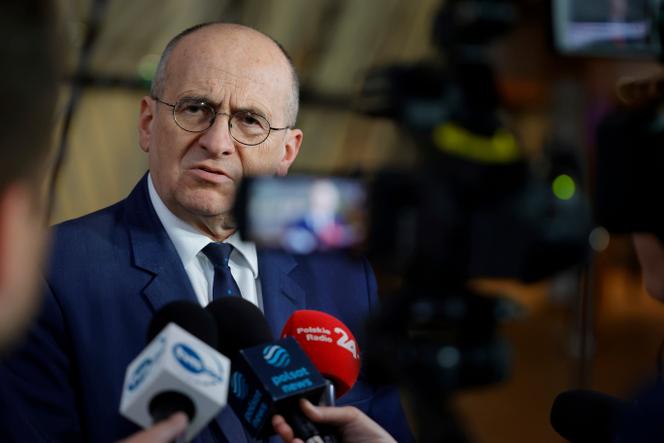


The scandal has been gripping Polish public opinion since early September, with twists and turns worthy of a true detective story. The question at issue is a series of Polish work visas granted more quickly in return for bribes. The applications were submitted to Polish diplomatic missions in Hong Kong, the United Arab Emirates, India, Saudi Arabia, Qatar, Singapore, the Philippines and Taiwan. According to several media reports, the sums paid ranged from a few hundred to tens of thousands of euros.
It all began on August 31 with the low-key dismissal of Piotr Wawrzyk, deputy foreign minister responsible for consular affairs. The following day, a terse statement from the Ministry cited a "lack of satisfactory cooperation." However, as the media noted, Wawrzyk was removed at virtually the same time from the electoral list of the ruling right-wing Law and Justice party (PiS), on which he was to stand for re-election in the October 15 parliamentary election.
Then, the newspaper Gazeta Wyborcza revealed that, on August 31, agents of the Central Anti-Corruption Bureau had seized the former deputy minister's equipment and carried out interrogations in his department. More recently, the online news site Onet asserted that the senior civil servant was at the heart of "an illegal immigration network from Asia and Africa" supplied via consulates and outside companies. In the face of the government's silence, the opposition took up the case.
"[This is] probably Poland's biggest scandal of the 21th century," said opposition leader and former prime minister Donald Tusk, claiming that "hundreds of thousands of people with Polish visas have been smuggled into our country."
The government is embarrassed, especially considering it had made immigration one of the key issues of its campaign, to the point of devoting to it two of the four questions of the referendum that will be held together with the legislative election on October 15. On Monday, September 18, during a trip to join the UN General Assembly in New York, Foreign Minister Zbigniew Rau tried to downplay the scale of the facts by saying that he did not "feel complicit in the visa scandal, which does not exist." However, three days earlier, in a new press release, his ministry had announced the dismissal of the head of its legal office, Jakub Osajda. Other measures taken included the suspension of agreements with subcontractors involved in visa applications and the introduction of an audit of Polish consulates.
You have 49.22% of this article left to read. The rest is for subscribers only.
